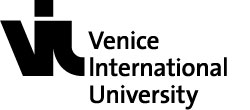F2205 Intercultural Communication in a Global World
Professors
Schedule
Course description
Communication across cultures is a key feature of a globalised world: a growing number of interactions in all spheres of life now involve participants who do not share the same language or culture. This is the case, for example, of multinational companies, multicultural cities and universities such as the Venice International University which adopts English as medium of instruction, but whose students are coming from several countries and belong to different cultures. Culture-diverse contexts require all involved to develop intercultural awareness and competence in order to function effectively.
This course aims to introduce the study of intercultural communication. Students will be familiarised with the main theoretical frameworks and approaches to intercultural communication. Students will develop an understanding of concepts such as culture, identity, language, culture shock, acculturation, prejudice and othering, verbal and non-verbal communication, media representation of cultures. Students will have an opportunity to collect, analyse and discuss their own field data dealing with a specific intercultural setting. The mixed nationalities present in the student body of the class and the Venetian context will be a great asset, because the students will be able to draw on their own knowledge and experience of cross-cultural encounters in order to understand key concepts and share them in the class discussions.
Learning outcomes
This module will provide students with an understanding of the key theoretical notions and concepts in Intercultural Communication as well as their relevance in multilingual and multicultural contexts, and in particular in academic environments. They will learn to examine and provide a critical discussion of the main components involved in intercultural encounters, especially those related to language. The module will also help students to develop strategies and practical solutions to handling intercultural encounters as well as the ability to engage with research on an individual topic.
Teaching methods
The course will be taught through a combination of lectures, seminar discussion of weekly readings, assignments and small-group exercises. The lectures will introduce each topic. The seminars will include a series of student-led activities: presentations, students will take turns to lead discussion and organise small-group tasks. There will be one or two readings per week (around 20/30 pages).
The module places considerable emphasis on collaborative forms of learning:
- All students will contribute to a Padlet wall ‘Intercultural Communication’, through which they will build up a shared portfolio of material (text extracts, photos, comments on a particular topic, students’ reports on cases of intercultural communication from their experience in their countries of origin and during their stay in Venice in interactions with Italians and flatmates from other countries).
- A discussion forum will allow students to ask any questions on the course or the readings.
- Students will be asked to discuss topics in small groups in advance of seminars and prepare seminar assignments together sometimes in the form of data collection or watching a video.
Syllabus
Introduction to the module: challenges of living in a global society
Understanding Communication
Understanding Culture
The influence of culture on perception
Culture and value orientation
Subgroups and Identities
Verbal Communication and Culture
Nonverbal Communication and Culture
Immigration and Acculturation
Developing Relations with culturally different others
Managing intercultural conflict
Teaching Assessment
Students will submit one essay of 2,000 words. The essay will count for 50 percent of the overall course assessment. The tutor will provide a list of questions; alternative questions may be possible, but only in consultation with the tutor. Students will be encouraged to collect data to analyse in their essay (interviews, newspaper articles, observations, photos, surveys, etc.). Students will be taught how to deal with ethical issue in data collection.
Each student will also participate in a group seminar presentation. The group presentation will receive a mark that amounts to 50 percent of a student’s overall module mark.
Bibliography/Recommended Reading:
Coulmas, Florian. 2005. Sociolinguistics. Cambridge: CUP.
Fasold, Ralph. 1987. The sociolinguistics of society. Oxford: Blackwell.
Hickey, L. and Stewart, M. (eds.). 2005. Politeness in Europe. Clevedon: Multilingual Matters.
Holliday, A., Kullman, J., and Hyde, M. 2010. Intercultural communication: An advanced resource book, Routledge.
Hua, Z. (Ed.) 2011. The Language and Intercultural Communication Reader. Routledge: London Jackson, Jane. 2014. Introducing language and intercultural communication. Oxon: Routledge. Jandt, Fred E. 2016. An introduction to intercultural communication. London: sage.
Kádár, D. and Haugh, M. 2013. Understanding Politeness. Cambridge: CUP.
Lakoff, G. and Johnson, M. 1980. Metaphors We Live By. London: University of Chicago Press. Liu, S., Volcic, Z., and Gallois, C. 2014. Introducing Intercultural Communication. London: Sage.
Martin, Judith and Thomas K. Nakayama. 2003. Intercultural communication in contexts. Crawfordsville: Mayfield.
Myers-Scotton, Carol. 2006. Multiple Voices: an introduction to bilingualism. Oxford: Blackwell.
Piller, Ingrid. 2011. Intercultural communication. A critical introduction. Edinburgh: Edinburgh University Press. Watts, R. 2003. Politeness. Cambridge: CUP.
Wierzbicka, A. 2003. Cross-cultural Pragmatics: the semantics of human interaction. Berlin: Mouton de Gruyter. Available as an e-resource.
Wierzbicka, A. 1997. Understanding Cultures Through their Key Words, Oxford: OUP.




















